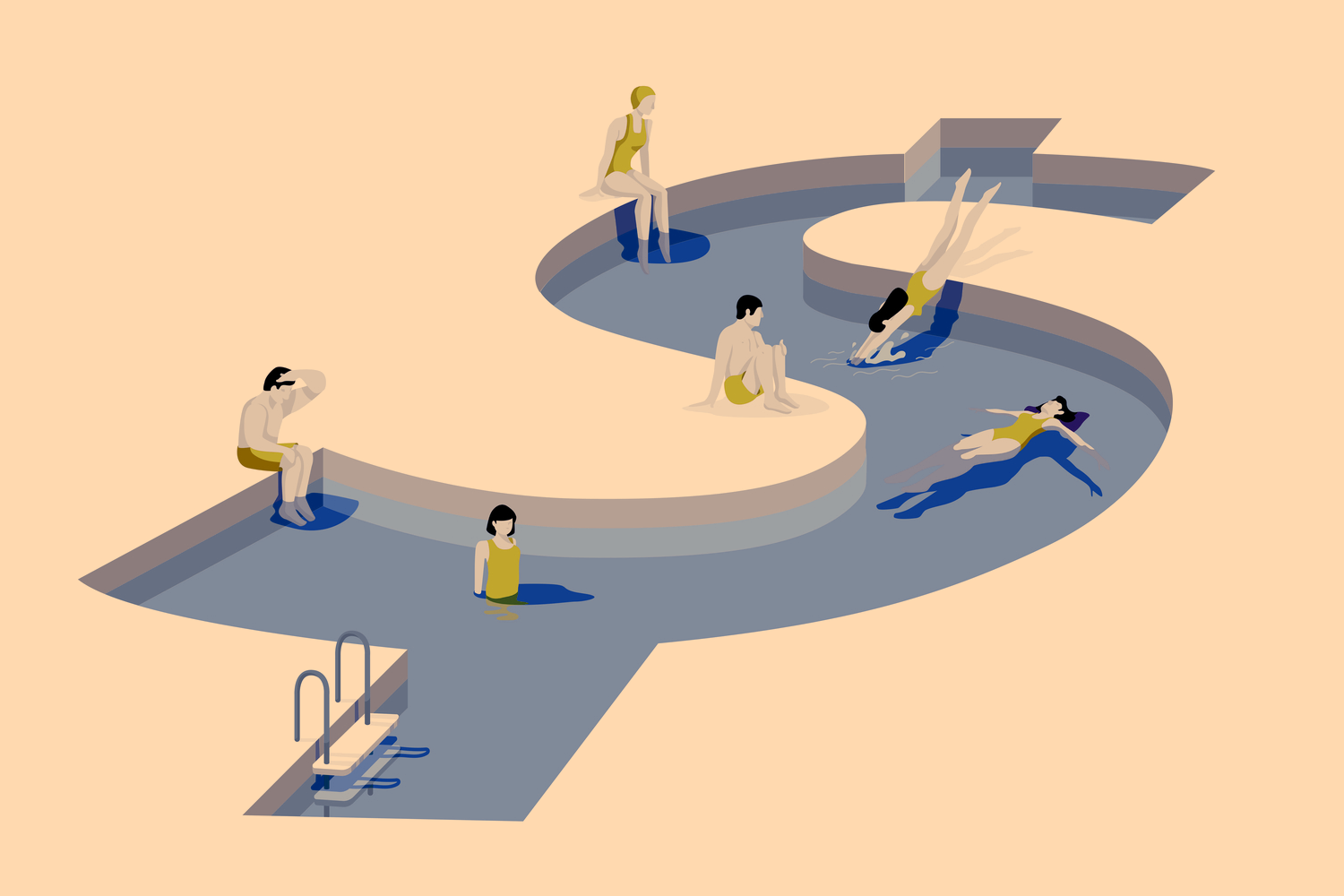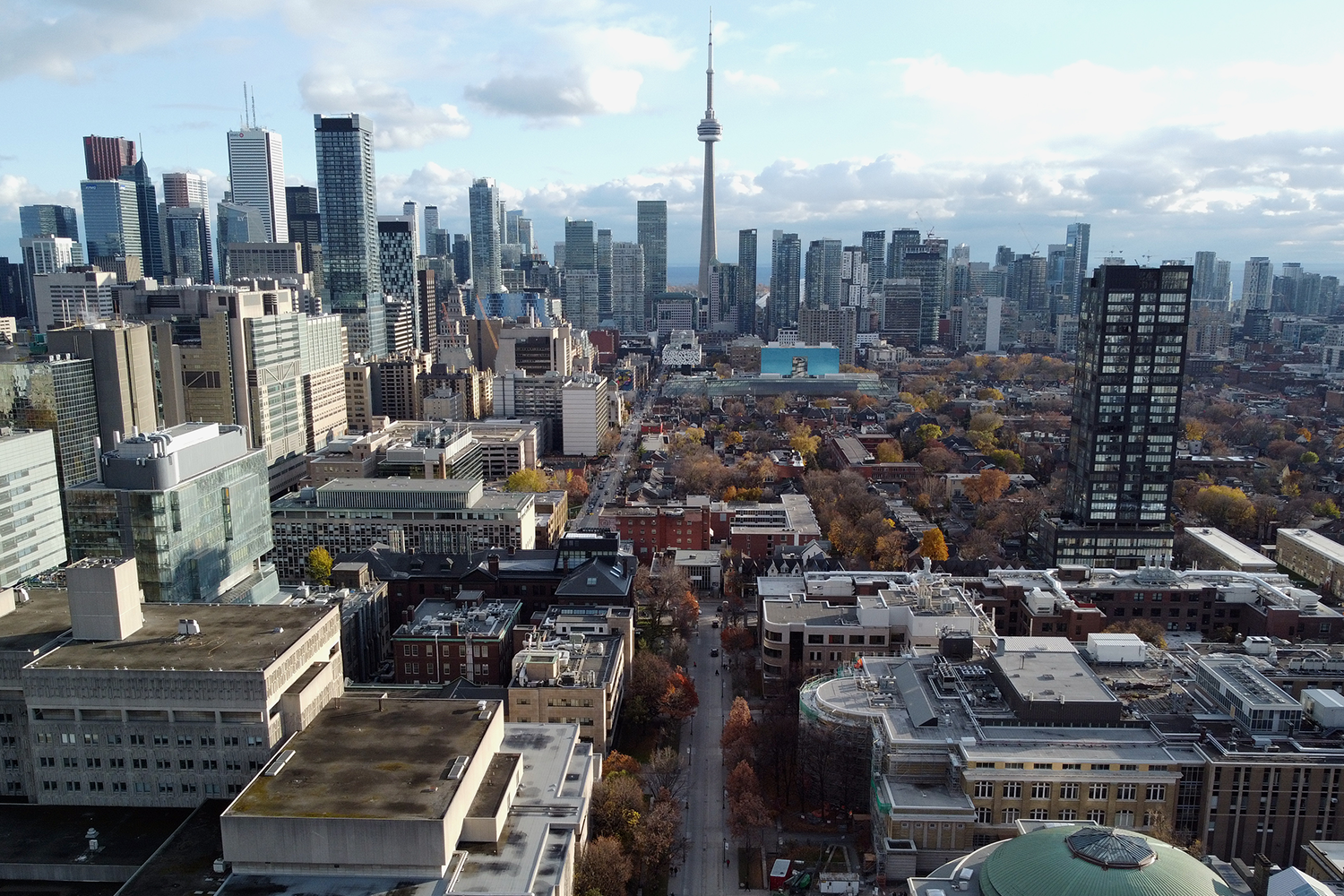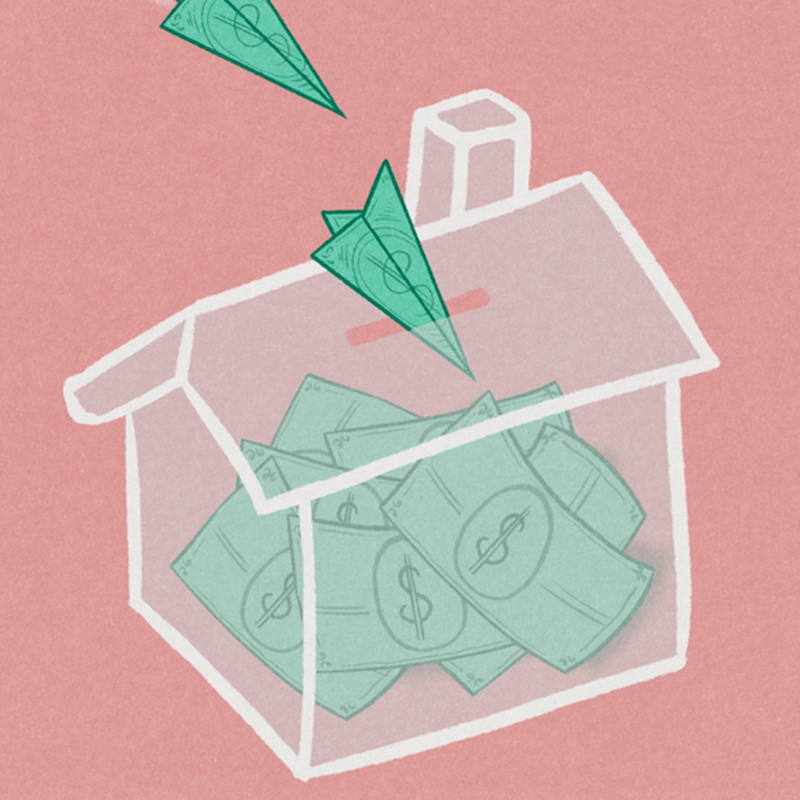Rising Interest Rates May Mean Homeowners Need to Sell Their Properties

Rising interest rates might force homeowners to rethink their financing options, or sell their homes altogether.
Around one in four Canadians say they will be forced to sell their properties if interest rates climb much higher, according to a recent survey from Manulife. The survey also found more than one in five homeowners expect rising interest rates to have a “significant negative impact” on their overall financial situation, while 18 per cent of Canadians are concerned that they will no longer be able to afford their current home.
Manulife conducted the survey before the Bank of Canada, or BoC, raised its key interest rate by 0.5 percentage points to 1.5 per cent in June in an attempt to tame inflation. (The BoC could announce up to four more hikes through 2022.) So far, the higher overnight rate has had a cooling effect on some parts of Canada’s housing market; home sales fell as much as 38.8 per cent in the Toronto area and 31.6 per cent in the Vancouver area year-over-year in May. Canada’s benchmark home price also fell 0.8 per cent to $822,900 in May from the month prior.
With inflation at 6.8 per cent, which affects the price of things like food and gas, homeowners are feeling the pain. Some say they face skipping meals or putting off bills to make their monthly mortgage payments as the cost of living in Canada also rises.
“Canadians are appropriately concerned about the overall effects of inflation on their household finances,” says James Laird, co-CEO of Ratehub.ca, a financial product comparison website, and president of CanWise mortgage lender. “Maybe their mortgage payment would be fine if their grocery bill hadn’t gone up by so much, or if it didn’t cost twice as much to fill up their car with gas.”
What other options do Canadian homeowners have aside from selling?
According to Todd Fralic, a broker at Alberta-based Quantus Mortgage Solutions, if Canadian homeowners bought their property when interest rates were very low—such as in the early days of the pandemic—and their mortgage is coming up for renewal at a higher rate, there are options aside from selling.
One option, he says, is for homeowners to adjust their amortization period—the length of time it would take to pay off a mortgage based on regular payments at a certain interest rate. If you are 10 years into your mortgage at renewal, brokers can show you what the payments would be over 20 years instead of 15, for example.
“Most clients want to accelerate their amortization, not wind it back,” says Fralic. “But given the higher costs of not just their mortgage, but almost all things right now, this is an option people may want to consider temporarily until the government gets a handle on inflation.”
Another option is for homeowners with a fixed-rate mortgage to refinance and secure a rate now before more hikes happen. But it’s important to thoroughly consider this option and evaluate your financial situation before making the move. “If you have one year left on your term, and today’s renewal rate is 1.5 per cent higher, would you be better off locking into a new five-year term today, or take your chances that a year from now rates aren’t 2.5 per cent higher?” says Fralic. “That’s a tough call to make, and most of our clients only think about their mortgage when it’s up for renewal.”
People with variable-rate mortgages may also consider going fixed if they’re nervous about rising rates. For homeowners in this situation, you could opt for a fixed-rate mortgage for peace of mind, although historically, interest rates on variable-rate mortgages are lower—it all comes down to your risk tolerance and ability to deal with the upcoming rate hikes. (Right now, the lowest mortgage rates in Canada are 2.5 per cent for a five-year variable and 3.79 per cent for a five-year fixed.)
One of the biggest costs associated with refinancing a mortgage—be it fixed- or variable-rate—is the penalty associated with breaking your contract. These penalties can range from thousands to sometimes tens of thousands of dollars, according to Fralic.
By refinancing your mortgage, you can also access any equity in your home that can then be used to pay down high-interest debt—which may be a welcome option as Canadian households are sitting on top of $2.7 trillion in debt, including mortgage debt, as of the first few months of 2022. “Most Canadians have grown the equity in their homes considerably the past few years, which could allow them to roll all their liabilities into one cheaper payment,” says Fralic.
Advice for people entering the housing market
The Manulife survey reported that nearly seven out of 10 Canadians who do not own a home are worried about saving up for one. Indeed, experts say homebuyers will feel the full impact of interest rate hikes this summer.
Saving to purchase a home is often a difficult task, no matter what’s going on with our economy, and one that requires thorough planning. Besides enlisting the help of a financial advisor, both Laird and Fralic suggest first-time buyers take advantage of government incentives, like tapping into their registered retirement savings plan to help get into the market.
It’s a chicken and egg situation right now, according to Fralic. “In a lot of markets, the question becomes: do I buy now and lock in a five-year rate that I know is going to be higher in a few months? Or do I wait a few months and see if house prices continue to soften and accept the fact my mortgage rate is going to be a little higher?” Like all things in personal finance, it’s important to make the right decision based on your circumstances.










